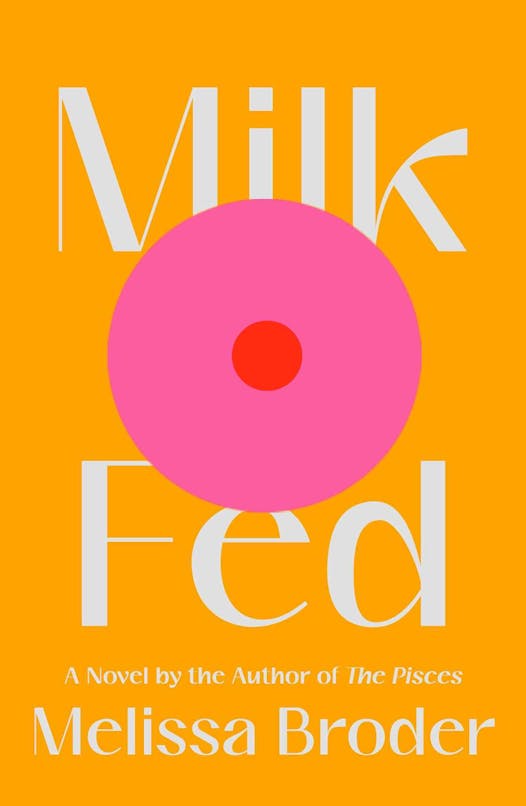"Milk Fed," Melissa Broder's hilarious, lush and sorrowful latest novel, set in Los Angeles, finds narrator Rachel painstakingly counting calories (nicotine gum is her first meal of the day). Trapped in a cycle of restrictive rituals, Rachel fantasizes about indulgence: "If I could be infinitely eating, I would be."
Her occasional stand-up routine in Silverlake aside, Rachel is genuinely funny: acerbic, self-deprecating, perceptive. She regards her job in entertainment with jaded clarity — "It was a show about zombies. How authentic could [it] be?" — but cannot detach herself from the industry's expectations.
"I did not want to be medium size," Rachel admits. "I wanted to be perfect. And by perfect, I meant less." Her visions of perfection are upended by her affair with Miriam Schwebel, a voluptuous, "zaftig" employee at Rachel's favorite frozen yogurt shop.
Broder develops Rachel's voice well beyond the arch mockery of the smarter-than-thou. Rachel may describe herself as a would-be comedian who "sweat[s] Coke Zero," and her first job at an L.A. diner as a threat of "suffocat[ion]" by "vegan donut," but she also recounts the impossibility of pleasing her mother, a woman who modeled an obsessive relationship with food.
"My mother, the high priestess of food — the religion of our household: abstain, abstain, abstain!" When Rachel's therapist — meticulously portrayed through Rachel's resentful but hopeful gaze — suggests a 90-day break from communicating with her mother, Rachel takes up this additional abstinence. Her life is already largely devoted to dieting.
Miriam's first overture to Rachel comes in the form of yogurt, making her decadent sundaes that surpass all of Rachel's requests. Rachel frankly worships Miriam's body, even though it is a body that Rachel herself would be terrified to have. One of the novel's less interesting features is the figure Rachel creates out of clay during a session with her therapist. She loses the figure (a female body), conducts an affair with Miriam, and finds it again, assigning it a golem's power.
Though these sections are just as well written and quippy as the rest, they seem like an effort to tie together that which is already beautifully bound: Rachel's hunger, for food and affection, and Miriam's offering.
Broder chooses the perfect structure for Rachel's story: the short, tart, candid chapters are like snacks, and the reader cannot help but reach for another until it is gone. This is, summarily, a 20-something's tale of poor body image and a brief affair in a big city, but it is eminently more than that. It's a story of religious identity, family, sexuality, food. There are nauseating scenes of binge-eating, but there is also a sincere appreciation of flavor and texture. Broder writes with humor but never with contempt. This work is unafraid of vulnerability, and appetite, and loss.
Jackie Thomas-Kennedy's writing has appeared in Electric Literature, LennyLetter, Narrative, The Millions, Harvard Review and elsewhere. She held a 2014-16 Stegner Fellowship at Stanford University.
Milk Fed
By: Melissa Broder.
Publisher: Scribner, 289 pages, $26.
Singing, ceremonies and straw hats: Olympics opening ceremony in Tahiti centers Polynesian culture

Three 101-year-old friends recall fond memories in 1940s Alexandria
Celine Dion makes musical comeback at Paris Olympics with Eiffel Tower serenade



